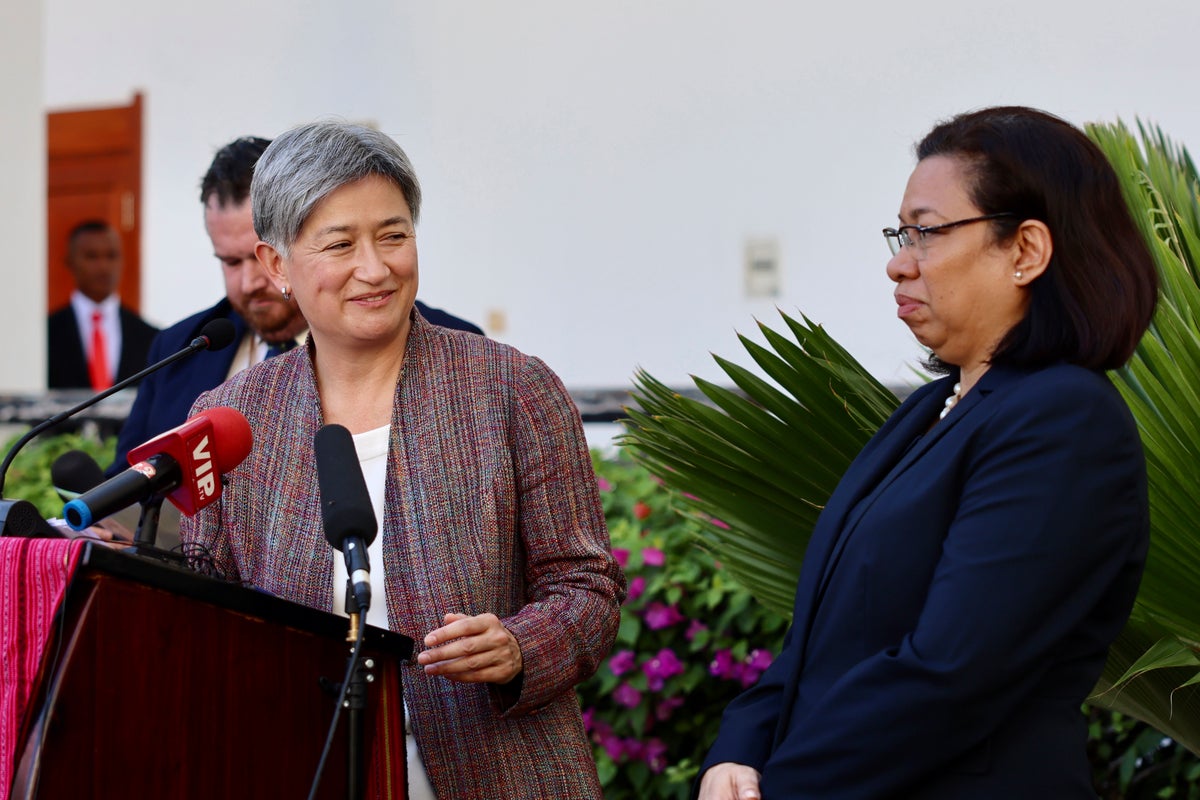
Australia’s foreign minister used a visit to East Timor on Thursday to warn the nation against going into “unsustainable debt” to the Chinese on a major gas project.
Foreign Minister Penny Wong said she discussed with East Timorese President Jose Ramos-Horta the Greater Sunrise, a $50 billion gas field beneath the seabed that separates their two countries.
Ramos-Horta said last month that he was prepared to turn to China to fund the Tasi Mane infrastructure project that would pipe Greater Sunrise gas to East Timor.
Wong declined to say whether Ramos-Horta discussed bringing in Chinese partners, saying “I don’t tend to come out with a readout of everything we discuss.”
She said Australian development assistance came with a “spirit of wanting" East Timor, a half-island nation with a population of 1.5 million, to be more resilient.
“We know that economic resilience can be effected, can be constrained by unsustainable debt burdens or lenders who have different objectives,” Wong told reporters in the East Timorese capital Dili. “We, Australia, we seek to help make your country stronger.”
Canberra and Dili have been arguing over how to share Greater Sunrise revenue since East Timor became independent of Indonesia in 2002.
Under a maritime border treaty they signed in 2018, East Timor would receive 80% of the revenue if the gas is piped to Australia and 70% if it is piped to East Timor.
A treaty signed in 2006 was canceled when East Timor accused an Australian spy agency of bugging government offices in Dili to give Australian negotiators an unfair advantage.
Australia’s new government, elected in May, pleased East Timor in July by dropping the 4-year-old prosecution of lawyer Bernard Collaery who was accused of attempting to prove the spying.
Wong said the existing joint venture partners in Greater Sunrise, East Timorese state-owned company Timor Gap, Australian company Woodside Energy and Japanese company Osaka Gas, would need to reach an agreement for the project to proceed.
“This has been stuck for many years. I’ve said to the President (Ramos-Horta) and to others we need to unstick it. We need to see how the way through can be found,” Wong said.
“That would be best done respectfully and directly, not through the media,” she added.
Michael Leach, an East Timor expert at Melbourne’s Swinburn University, said it unclear whether China would be interested in investing in East Timorese gas infrastructure.
“At this moment in time, there’s no evidence of actual Chinese interest,” Leach said.
“What’s significant is that the Timorese political elite appears to be united across all parties now in saying that Timor would be open to seeking alternative partners if traditional partners don’t some to the table,” Leach added.







